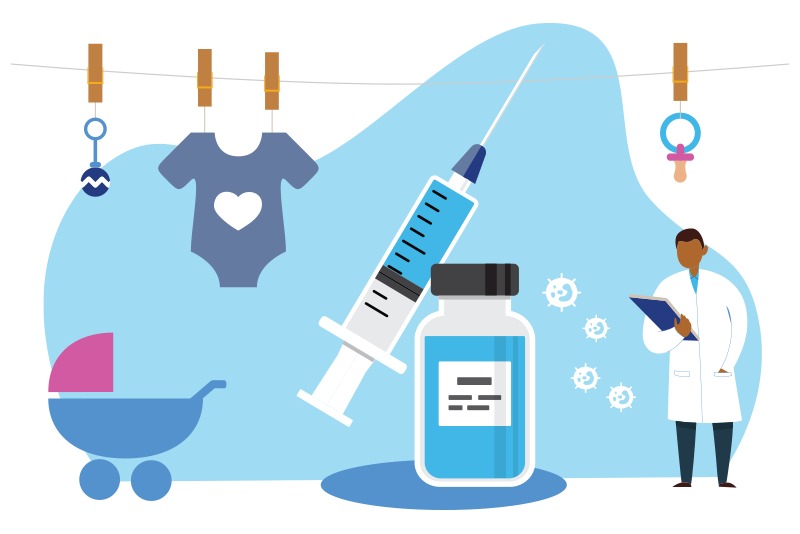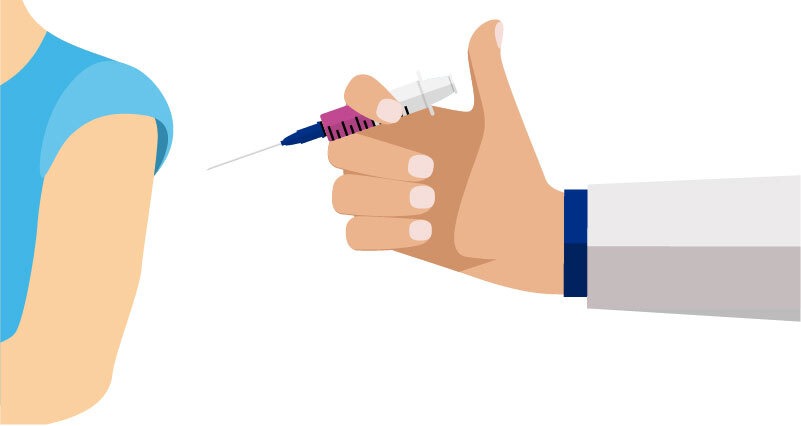Study Vaccine may reduce baby RSV hospitalizations by 80%

Global study suggests nirsevimab reduces infant RSV infection rates significantly.
A “groundbreaking” study has discovered that a vaccine has the potential to decrease hospital admissions for babies and young children with respiratory syncytial virus (RSV) by 80%.
Published in the peer-reviewed New England Journal of Medicine, the study included 8,058 healthy infants aged up to 12 months from the UK, France, and Germany, all approaching their initial RSV season.
From this cohort, 4,037 infants were randomly designated to receive the nirsevimab vaccine, while 4,021 babies received standard care. The study revealed that among infants who received the vaccine, only 11 (0.3%) were hospitalized, in contrast to the 60 babies (1.5%) who were hospitalized after receiving standard care alone.
In the trial, researchers noted that the nirsevimab vaccine reduced the likelihood of hospital admission from six admissions per 1,000 in previously healthy infants to one admission per 1,000 in those who received the vaccine—an efficacy of 83.2%.
Funding for the research was provided by Sanofi and AstraZeneca.
Respiratory syncytial virus (RSV) is a prevalent chest infection affecting babies and young children, with the RSV season typically spanning from autumn to spring. Although RSV often causes mild cold-like symptoms, it can escalate to more severe complications such as bronchiolitis and pneumonia in some infants.
In England, RSV stands as a primary factor behind infant hospitalizations, with almost 31,000 children aged four and under admitted annually due to conditions associated with the virus. RSV contributes to 20 to 30 infant deaths each year in the UK, and globally, the virus claims the lives of 100,000 children under the age of five annually.
While nirsevimab received approval for use in the UK from the Medicines and Healthcare products Regulatory Agency in November 2022, it has not yet been incorporated into a vaccination program.
Professor Calum Semple, a professor of child health and outbreak medicine at the University of Liverpool and a respiratory consultant at Alder Hey Children’s Hospital, expressed enthusiasm for the trial results.

He stated, “The results are splendid. Respiratory syncytial virus causes distress for tens of thousands of babies in their first year of life in the UK. While RSV commonly induces an unpleasant, heavy, snotty cold and earache in babies, it can progress to bronchiolitis—a severe disease marked by feeding difficulties, dehydration, chest infections requiring hospitalization, and respiratory failure necessitating intensive care.”
Semple highlighted the regular winter surge in bronchiolitis admissions, stressing the strain on children’s health services caused by RSV infecting infants. He suggested, “With nirsevimab, we have a single injection that has now proven highly effective in healthy infants. It may be time for the UK to extend the seasonal RSV immunization program to all newborn infants to spare them from the misery of bronchiolitis and alleviate the pressure on hospital services.”
Dr. Simon Drysdale, co-leader of the study and consultant pediatrician at St George’s University Hospitals, commented, “RSV is an extremely contagious infection, and annually, our wards are filled with babies experiencing breathing and feeding issues. The substantial winter hospital admissions cause immense distress for families and impose a significant burden on the NHS. This groundbreaking study highlights the potential impact on the NHS and the safety of a monoclonal antibody injection.”


